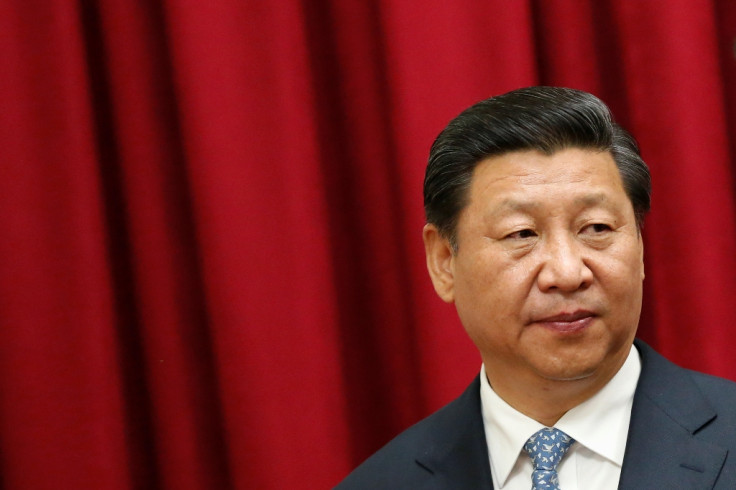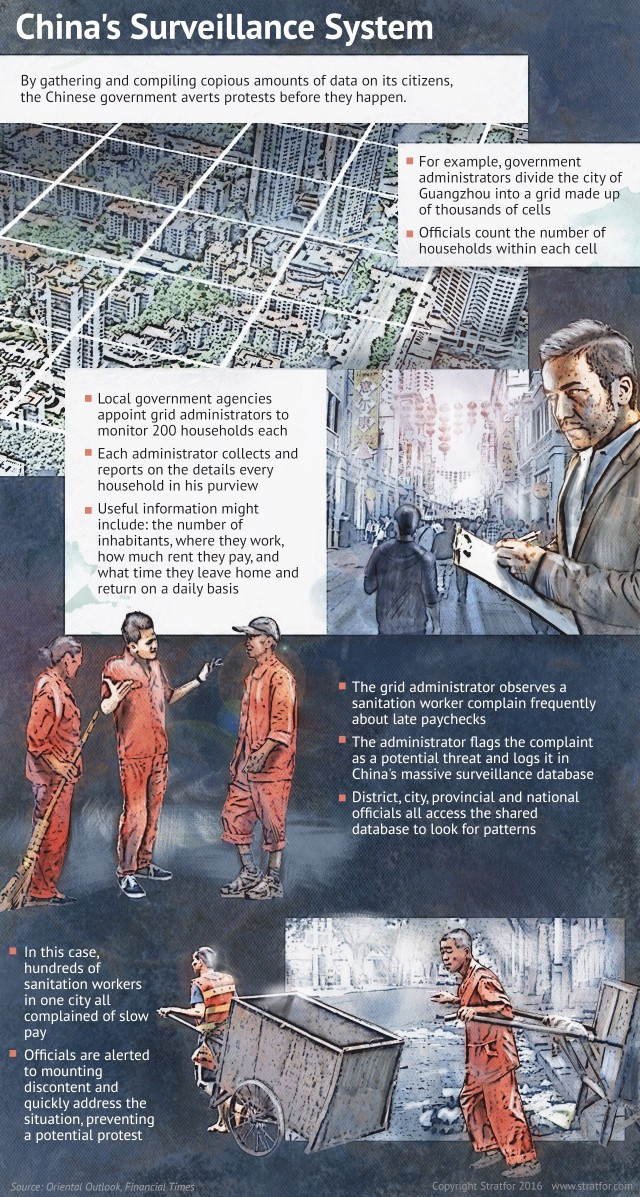How China uses mass surveillance and big data snooping to curb social unrest

The Chinese government is reportedly constructing a vast spying apparatus that merges big data analytics with the surveillance state, in order to help curb social unrest.
Dubbed as a state-of-the-art 'grid management system' and produced under the watchful eye of the Communist Party-led government in Beijing, the project has reportedly been developed over the past five years and is nearing its completion. The news comes from US-based intelligence firm Stratfor, which itself outlined how the move would 'bring Chinese surveillance into the 21st century'.
How does it work?
"China is already gathering massive amounts of data on its people. It has been for years," the report states. But with information coming in on so many platforms, even a well-staffed government may struggle to parse the useful data from the mundane - unless it does so with the help of a state-of-the-art program that can run data analytics on a well-ordered database.
"For the past five years, China's government has been building exactly that kind of system", states the Stratfor report.
In theory, the surveillance state's core ideal is relatively straightforward. Starting back in 2011, Chinese officials organised the nation's geography into 'grids', or 'administrative blocks'. Then, each block was assigned a 14-digit code and entered into a database. The subsequent data entry then included every bit of fixed infrastructure - everything from a skyscraper to a park bench.

In order to input the massive amounts of data, the Chinese government then hired 'thousands of low-level government employees'. The report claims that in one area alone, roughly 12,000 employees were employed to monitor 200 households each. All of this data is then added into one central database – where it is "combined with data collected from video cameras and website censoring."
The report states: "Authorities can analyse that data to detect trends, in hopes of pre-empting social unrest. For instance, if more than three protests occur in one town within a certain period, the new system could alert administrators, who could then send more police to that area or make other policy adjustments to maintain stability."
The news comes only two months after the long-rumoured espionage project was exposed by an insider, who claimed that they had worked on its development. The source, who spoke to The Epoch Times on condition of anonymity, even claimed the government brought in a small group of "independent software developers" from the US to work alongside the country's security services – however this was never verified with a second source.
China's new age of 'immediate' cybersecurity
Additionally, as first reported by Bloomberg, China recently ushered in fresh cybersecurity laws that force all companies operating in the country to share its data with the government and security services, in order to 'aid investigations'. Meanwhile, the internet remains heavily censored to China's general population under the safeguard of what has been coined, in contemporary times, The Great Firewall.
Now, Stratfor claims to have exposed the inner workings of the system and all its invasive properties. "Chinese authorities theoretically have the power to respond to threats almost immediately," the report notes. "If it is effectively implemented, the surveillance grid provides the central government a much higher level of control over local governments, essentially making it more difficult for mid-level officials to hide any local disruption or, potentially, their own mismanagement of the situation."
It added: "[The] power is all the more important for Chinese leaders at a time when the country's deepening economic challenges will almost certainly stoke unrest. Slow growth and painful industrial consolidation will leave some segments of China's population out of work and without the support of social services. In the face of such uncertainty, China is betting that close monitoring and quick, even pre-emptive action will help prevent protests, maintain stability and bolster the legitimacy of Communist Party rule."
The bolstering of domestic spying echoes recent moves by other superpowers to further enhance the reach of domestic surveillance – especially by developing spying programmes that glean massive amounts of data from phone calls, text messages and internet use.
In the UK, for example, the government is currently attempting to pass the Investigatory Powers Bill which aims to provide the police, government and intelligence agencies with greater access to communications data and the legal authority to hack into targets' computer devices, phones and computer networks.
© Copyright IBTimes 2025. All rights reserved.






















